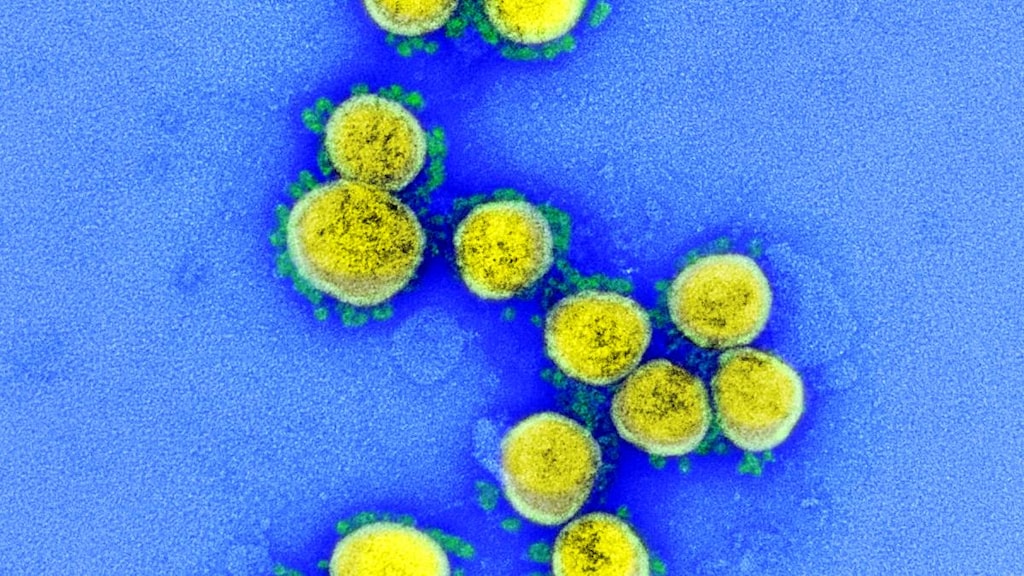COVID-19 reinfection possible - Hong Kong, Belgium and the Netherlands confirm cases


Researchers from the University of Hong Kong’s Department of Microbiology have identified what appears to be the first documented case of reinfection with SARS-CoV-2 in a 33 year old man who had already had COVID-19. Shortly after the announcement of the Hong Kong case, two further cases of reinfection were also reported, including one case in Belgium and another in the Netherlands
Back in April 2020, reinfection with SARS-CoV-2 was put forward as a possible explanation for new positive tests in people who had recovered from COVID-19 in South Korea. While these were later confirmed to be cases of dead virus fragments causing false positive test results, rather than virus reactivation or reinfection, researchers have now documented cases of SARS-CoV-2 reinfection.
Why do researchers think they have identified a case of SARS-CoV-2 reinfection?
The researchers from Hong Kong found that the strain of SARS-CoV-2 the man was identified as having on August 15, 2020, was different to the strain that caused him to develop COVID-19 back in March 2020.
When the researchers compared the samples collected from the man in March and August 2020, they found that the genomic sequence of the virus in the two samples was different. Genomic sequencing looks at the genome, or genetic material that makes up the virus. Over time small mutations occur in the genetic material that makes up SARS-CoV-2 and other viruses, which leads to different strains of a virus circulating.
By comparing the two different samples from the same man, the researchers were able to identify that the man had been infected for a second time with a different strain (clade/lineage) of the virus.
The women identified in Belgium as having had COVID-19 twice, was also reported to have been infected with two different strains of SARS-CoV-2. The strain she picked up in June was found to be different from the first one she contracted in March 2020, according to Belgian virologist Marc Van Ranst.
Marion Koopmans, a member of the World Health Organization's scientific advisory group and a virologist in the Netherlands, has also confirmed that the elderly Dutch patient reinfected with the virus had caught two different strains.
Researchers in other countries, such as New Zealand, are also using genomic sequencing techniques to track the introduction of the SARS-CoV-2 virus to the country and its spread in the community.
What do we know about the people reinfected with SARS-CoV-2?
The 33 year old man identified as having been reinfected with SARS-CoV-2 lives in Hong Kong. Back in March 2020, he developed typical COVID-19 symptoms of a cough, sore throat, fever and headache, which persisted for three days. An RT-PCR (reverse transcription polymerase chain reaction) test for SARS-CoV-2 was carried out on March 26, 2020, which confirmed a COVID-19 diagnosis. He was subsequently isolated in hospital until he twice tested negative for SARS-CoV-2 and was discharged on April 14.
On August 15, 2020 the man was once again tested for SARS-CoV-2 during screening at Hong Kong airport after returning via the United Kingdom from a trip to Spain. He was once again hospitalized, but did not develop any symptoms of COVID-19.
The woman in her 50s identified as having been reinfected with SARS-CoV-2 in Belgium, was first infected in March before coming down with COVID-19 again in June 2020. She is reported to have had very few antibodies following her first episode of COVID-19.
The Dutch patient reinfected with COVID-19 is reported to be elderly and have a weakened immune system.
What did the researchers conclude after confirming that people can be reinfected with SARS-CoV-2?
The Hong Kong researchers involved in the first documented case of reinfection have reported that this finding has several important implications including that:
- It is unlikely that SARS-CoV-2 can be eliminated through herd immunity
- COVID-19 will likely continue to circulate like other coronaviruses that cause common colds
- Lifelong protection against COVID-19 may not be achievable with a vaccine
- Since immunity to SARS-CoV-2 can be short lived following a case of COVID-19, even those who have developed the disease should consider vaccination and comply with social distancing and mask wearing recommendations.
Marc Van Ranst, the Belgian virologist has indicated that it is too soon to tell if reinfection cases will be limited to some exceptions and more cases were likely to follow in coming weeks. He also commented that it is likely that a COVID-19 vaccine will likely need to be redesigned quite regularly, just like is done with the flu vaccine.
Meanwhile, Marion Koopmans commented that she didn't think reinfection would be standard.
Article references
- Lilian Cheng (August 24, 2020). #JustIn: #HKU's microbiology team issued a press release suggesting the 33-year-old IT patient, who came back from #Spain, is the world’s first #Covid19 reinfected patient. #Covid19 #coronavirus. [Twitter Post]. Retrieved from: https://twitter.com/cwylilian/status/1297830744509698050.
- Science Medicine Centre. Tracking COVID-19 with genome sequencing – Expert Briefing. April 30, 2020. Available at: https://www.sciencemediacentre.co.nz/2020/04/30/tracking-covid-19-with-genome-sequencing-expert-briefing/. [Accessed August 25, 2020].
- Geoghegan JL, Ren X, Storey M, et al. 1 Genomic epidemiology reveals transmission patterns and 2 dynamics of SARS-CoV-2 in Aotearoa New Zealand. medRxiv preprint August 20, 2020. doi: https://doi.org/10.1101/2020.08.05.20168930. [Accessed August 25, 2020].
- Reuters. Coronavirus re-infections raise concerns about immunity. August 25, 2020. Available at: https://www.reuters.com/article/us-health-coronavirus-netherlands-reinfe/two-european-patients-re-infected-with-coronavirus-idUSKBN25L0LF?il=0. [Accessed August 26, 2020].
- Kai-Wang To K, Fan-Ngai Hung I, Ip JD, at al. COVID-19 re-infection by a phylogenetically distinct SARS-coronavirus-2 strain confirmed by whole genome sequencing, Clinical Infectious Diseases, August 25, 2020, ciaa1275, https://doi.org/10.1093/cid/ciaa1275. [Accessed August 27, 2020].
- Marion Koopmans (August 27,2020). have seen a similar case with an immunological condition, so patient that can pick up viruses very easily. They are well known in tertiary care. But from what we have learned sofar, i see these as exceptions, not the rule. Wld be very surprised if early reinfections wld be common. [Twitter Post]. Retrieved from: https://twitter.com/MarionKoopmans/status/1298631331904204801.




